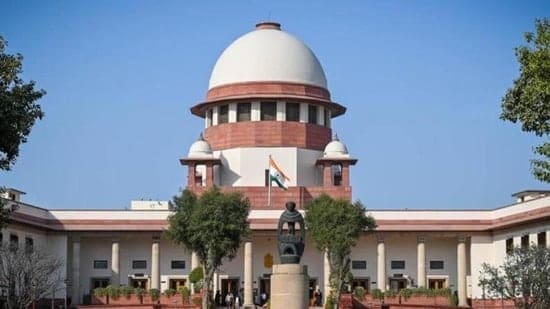The Supreme Court on Tuesday dismissed the petition filed by a Christian officer who challenged his dismissal from the Indian Armed Forces for refusing to participate in his regiment’s weekly religious parades, Live Law reported.
A Bench of Chief Justice Surya Kant and Justice Joymalya Bagchi refused to interfere with the Delhi High Court order that had upheld his termination. Senior Advocate Gopal Sankaranarayanan, appearing for Kamalesan, argued that the officer had been penalised solely because he declined to enter the innermost sanctum of a temple at his place of posting.
He maintained that his client took part in regimental activities wherever a Sarva Dharma Sthal was available, but the location in question had only a temple and a gurudwara.
Justice Kant questioned whether such behaviour was permissible in a disciplined force, remarking that it reflected the “grossest kind of indiscipline.”
Sankaranarayanan responded that entering the sanctum and participating in rituals would violate his client’s monotheistic Christian faith.
He explained that Kamalesan would accompany his troops to religious sites but stand outside during rituals such as puja, aarti or havan.
The CJI, however, noted that the regiment also had a gurudwara, and said the officer’s conduct appeared to insult other religions, asking whether his “religious ego” was so high that he did not care about his troops’ sentiments.
While the Bench pointed out that Kamalesan was not required to perform rituals, the counsel argued that as a troop leader he might be expected to lead them.
He claimed that the conflict began because one superior officer, the Commandant, repeatedly insisted that he enter the sanctum and conduct rituals, and that his Annual Confidential Report was downgraded only during that period. Sankaranarayanan insisted that the Constitution under Article 25 protected his client’s right not to worship a deity from another faith.
Justice Bagchi noted that the local pastor had advised Kamalesan that entering such a space would not violate Christian doctrine, and argued that Article 25 protects essential religious practices, not personal interpretations of scripture.
When asked where Christian teachings forbid entering a temple, the council cited the First Commandment, “Thou shall not worship another god,” and clarified that the apprehension was not about entry but about being compelled to take part in worship.
“The first command only says you must have faith in one god. Now, there … in the Hindu religious faith which has faith in one God,” Justice Bagchi said.
The judges nonetheless observed that as an officer in uniform, he could not rely on a private understanding of his faith when leading troops from diverse backgrounds, and that refusing to participate undermined unit cohesion.
When the Bench indicated it would dismiss the case, Sankaranarayanan requested at least a reduction in penalty on grounds of proportionality, pointing out the officer’s otherwise unblemished record. The Court declined, stating that his conduct could not be condoned.
Justice Bagchi pointed out that the officer had, in his reply, admitted that other Christian officers said “please do it, there is no difficulty”. “But your interpretation of your religious rights is ‘I am not going to offer flowers or havan in a gurudwara’. We understand that may be a sentiment of your understanding of your Christian faith. But that is not the essential features as appraised either by the pastor or other members of your faith.”
CJI Kant said that the Indian Army is renowned for its secular character, and that Kamalesan had failed to respect his soldiers’ sentiments.
When the counsel warned that the decision would send a wrong message, the CJI replied that it would instead send “a strong message,” and formally dismissed the petition.
In its earlier decision, the Delhi High Court had noted that although some regiments retain names linked to religion or region, this does not compromise the secular ethos of the Armed Forces.
It observed that traditions such as war cries, though religious-sounding, function primarily as tools of motivation and solidarity.
The Court concluded that Kamalesan had placed his religious identity above a lawful command, and that such conduct, while it may appear harsh to a civilian, struck at the heart of military discipline.
It held that his persistent refusal to participate fully in regimental religious parades had damaged the camaraderie essential between officers and soldiers, and that his termination was justified because such a breakdown could have serious implications in combat situations, where cohesion and trust are crucial.
The post SC upholds dismissal of Christian Army officer who declined to enter temple parades appeared first on Maktoob media.










